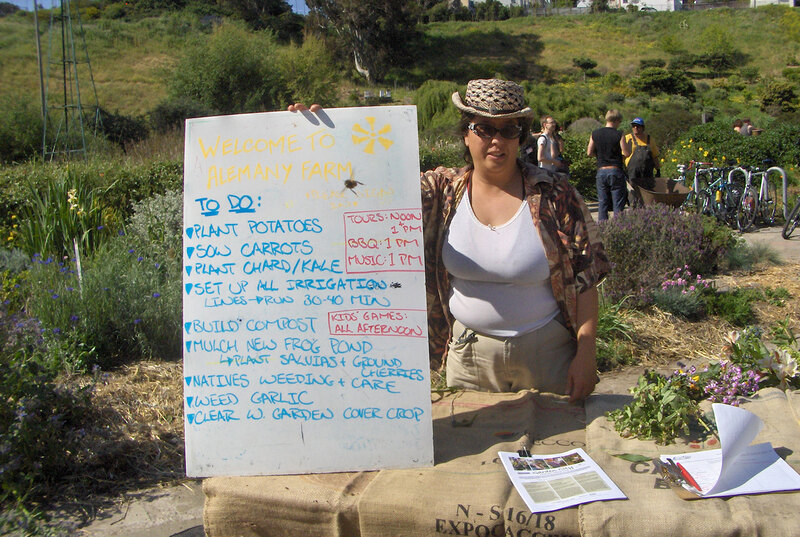Urban Garden Research Underway

July 12, 2010
In March, Jennifer Gorospe, a masters student in Environmental Studies at San Jose State University, received the Garden Club of America/Douglas Dockery Thomas Fellowship in Garden History and Design. Her proposed project, on “Income, ethnicity, and exposure to heavy metals by urban gardeners” in San Francisco addresses a timely issue, as the popularity of community gardens continues to grow throughout the U.S. We caught up with Jennifer recently to see how her research is going.
How has the GCA/DDT Fellowship helped you in your studies?
When deciding on a thesis topic, I wanted to find a way to give back to my community as part of my learning process. The project that was most exciting to me, however, required significant external funding to accomplish. I received partial funding from the California Environmental Protection Agency’s Environmental Justice Small Grants Program, and the GCA/DDT Fellowship has covered the rest of my expenses, allowing me to fully proceed with my research.
Tell us about your research.
Primarily, I am looking for disparities in exposure to heavy metals through gardening by different groups in San Francisco. To accomplish this, I am testing garden soil from 100 gardens - providing this free of charge to the gardeners.
I have also incorporated an educational component to my project. I have created a pamphlet (along with two local non-profits) on heavy metals and gardens, which has been translated into 4 languages, and will be hosting a community meeting in August in each of the 5 target neighborhoods to talk about gardens, heavy metals and soil testing.
Once all the test results are in, I will analyze the data to see if there are neighborhoods or demographically-similar groups (such as race/ ethnicity) that have a disproportionate rate of exposure. I will factor in garden location, land use, types of produce grown and consumed, along with census data.
Receiving the GCA/DDT Fellowship has inspired me on a number of levels. As part of my project, I have met a wide variety of gardeners - from CEOs to chefs; from new gardeners learning to build soil on a decommissioned freeway off-ramp to the octogenarian who runs a garden program for inner-city teens. The diversity of individual gardeners is truly amazing, and I recognize how lucky I am to connect with each one of them.
Jennifer Gorospe, 2010 GCA/DDT Fellowship winner
Where are you at in the process?
I am currently recruiting gardeners to participate in the project. Just over 100 eligible gardeners have completed my survey, and I have communicated with many more gardeners who are not eligible to participate, but want to know where they can get their soil tested and how to keep their children safe from heavy metals.
I have given out a few hundred of the pamphlets at community events such as farmers’ markets, garden workshops and health fairs, and am gearing up for the community meetings in August. Soil testing will happen in September, and I will be informing the gardeners of their results in the months that follow.
What do you hope will be the outcomes of your work?
I have spoken with many people who would like to start a vegetable garden but are worried about what is in their soil. To these gardeners-to-be, I have provided information on where they can get inexpensive soil testing, and how to take a soil sample. I do not want to scare anyone away from gardening! Rather, I hope to help educate the public on what the risks actually are (likely very small) and teach gardeners and potential gardeners methods to reduce exposure… beginning with having their soil tested!
If it is found through my project that one neighborhood has levels of heavy metals that are higher than desired, perhaps the data can be used to help local agencies and non-profits to target education and resources to these areas of concern, so everyone has equal access to safe gardening spaces!
Any opinions expressed in this interview belong solely to the author. Their inclusion in this article does not reflect endorsement by LAF.











